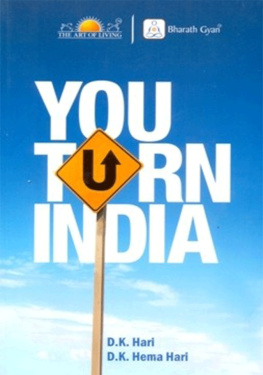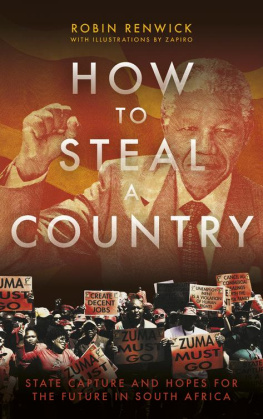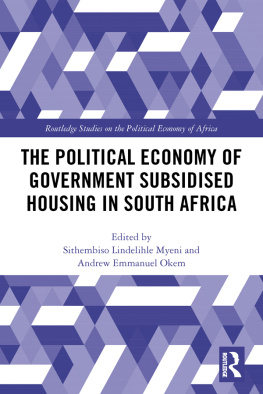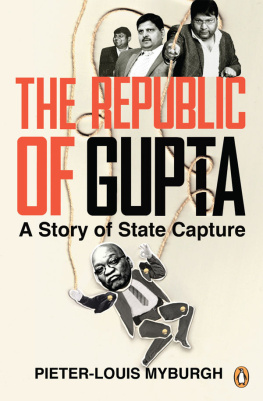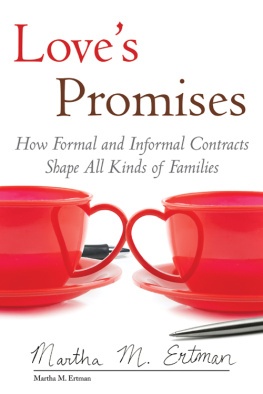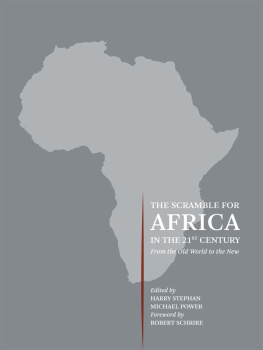Contents
Guide
Did you enjoy this ebook? Please rate or review it online or get in touch with us at .
Its a Friday evening in April 2016. Im standing in my hotel room in Dubai looking out at the worlds tallest building, the Burj Khalifa, when my phone rings. Its one of my best contacts. Lets call him Calvin. Hes one of those guys every journalist wants as a source: well connected in the world of high finance and close to some very senior ANC politicians. He also claims to be a longtime acquaintance of leading members of one or two of the worlds more interesting intelligence services.
Ive never been able to figure out how Calvin managed to become so connected. He once ran a company with links to the ANCs informal intelligence structures and was involved in mining deals throughout Africa, but that doesnt really account for the depth and range of his contact network. Calvin is often on the money but he rarely provides me with a paper trail or any way of corroborating his tip-offs, which is why I seldom publish anything he tells me, no matter how juicy the story, until I can find a way of verifying it independently.
Steve, he says. Brian Molefe just gave the Guptas R2 billion to buy Optimum.
I take a deep breath. The Guptas are a controversial immigrant family which has cultivated close ties with South Africas political elite. Brian Molefe is the chief executive of Eskom. The national power utility operates thirty power stations that generate 45 000 megawatts of electricity, mostly from burning coal, making it the largest in Africa by far. It earns R177 billion a year from selling power to South Africa and its neighbours, which is almost three times the revenue generated by the countrys second-largest parastatal, the ports and rail authority Transnet. Eskom is a company that more than any other in the public or private sector holds the fate of the South African economy in its hands. Without a regular power supply, mines, smelters, commercial farms and the retail, manufacturing and hospitality industries would grind to a halt. Its been estimated that the economy lost up to R1 billion a day during the height of rolling blackouts in 2014. When Eskom sneezes, the entire country catches cold. It is therefore vital for the economy that the utility is run properly.
Eskom spends R140 billion a year on operating expenses alone almost four times more than Transnet does. This excludes the R337 billion being spent over several years to build the mega power stations Medupi and Kusile and the Ingula pumped-storage scheme, R23 billion a year in interest on ballooning loans, and billions more on maintenance and refurbishment. Buying coal accounts for R50 billion of Eskoms annual operating costs, the parastatals single biggest expense. At one point, it was also spending R1 billion a month on diesel to fuel its emergency generators. Eskom spends R33 billion a year on salaries for its 48 000-strong workforce up from 35 000-strong a decade ago, even though the utility sells less electricity today. The rest is spent on forking out massive and often inflated fees to consultants and contractors. Eskom was ripe for looting.
One of the biggest stories in 2016 exposed how Brian Molefe and mineral resources minister Mosebenzi Zwane helped the Gupta family buy Optimum coal mine from Glencore shortly after President Jacob Zumas son Duduzane Zuma became a shareholder in Gupta mining company Tegeta. Molefe was a key player in the saga, having forced Optimum into business rescue by refusing to renegotiate uneconomical coal prices. This left Optimum open to takeover by the Guptas, who would have no trouble in getting a better deal from Eskom once theyd laid their hands on the mine. But the deadline for the Guptas to come up with the purchase price of R2.15 billion was 14 April 2016. Just days before the deadline, they were still scrambling to find the money. Then, at the last minute, an announcement was made that theyd come up with the cash.
The big mystery was where the money came from. And now here was Calvin, on the phone to me twenty-four hours later, claiming it was Molefe. It was a great scoop, but it sounded too good to be true.
Youre saying Brian Molefe, the CEO of Eskom, gave the Guptas the money to buy Optimum? I ask Calvin.
Yup. Eskom gave them the money up front for future coal deliveries. Brian authorised the deal. A forward purchase agreement. Why dont you ask him?
Who told you this?
Its true, Steve. Just write it! This is gospel. Im telling you now, its 100 per cent. Just ask Brian. Hell have to tell you.
I decide to check in with a banking source who used to work in the coal industry and still has connections at Eskom.
Yes, its true, he says.
How would you know for sure?
Ive spoken to two people directly involved.
Can I talk to them?
Look, he says, sounding exasperated, that was always the plan. The Guptas wanted to break into the big league in the coal supply game. To do that, they needed to own a mine like Optimum. And they wanted Eskom to help them pay for it.
By making the prepayment?
Yes. Eskom paid the Guptas up front for coal supplied by Optimum to help them pay for the mine. Thats how it was done.
Another question that nagged at me was why the Guptas would want to buy Optimum in the first place. The mine was haemorrhaging R100 million odd a month after being locked into a long-term contract with Eskom to supply the adjacent Hendrina power station at the price of R150 a ton. By 2015, it was costing Optimum R300 a ton to mine the coal. The colliery desperately needed to negotiate a more favourable rate, or it would go out of business. Molefe refused to budge. Instead, he imposed a R2.2-billion fine on Glencore for previous deliveries of substandard coal.
I ask my banking source what the Guptas would want with a lemon. Theyre looking for better opportunities down the line, he explains. Optimum supplies Hendrina. But I was told they will also supply Arnot power station for a higher price.
Arnot is twenty-five kilometres away from Optimum. This arrangement would have an added advantage: while transport costs to Hendrina power station were minimal because the coal was shunted directly to the plant on a conveyor belt, the Guptas could slap on inflated trucking costs to Arnot on top of higher-priced coal. Thats how they will make their money back, he says.
At the time, I thought the story sounded far-fetched. It was too brazen. Surely, given all the adverse publicity surrounding the Guptas and their business dealings with Jacob Zumas family, Eskom wouldnt dare help them buy a coal mine. The notion that the power utilitys chief executive could have personally authorised a shady deal benefiting the presidents son seemed absurd. South Africa has been through some pretty bad corruption scandals, but theres usually some attempt to preserve a fig leaf of respectability. Were not Russia or the DRC, I remember thinking.
In hindsight after a deluge of leaked emails originating from the server of a Gupta company laid bare just how deeply Zuma, his cabinet and a host of parastatal bosses were in the familys pocket my qualms seem somehow quaint. That moment would come to feel like another country.
On Saturday 16 April I decide to give Molefe a ring, just to see what he says. If this whole things been fabricated by sources who tend to see a Gupta plot under every rock and behind every tree, then Molefe can easily clear things up. Thats if he picks up the phone.
To my surprise, he answers almost immediately. He sounds gruff and put out when I ask about the Gupta prepayment.
Im at a funeral. You can send your questions to the Eskom spokesperson.
I apologise for disturbing him. But this involves you personally. Can you tell me if you authorised that forward payment or not?
He accepts my apology but doesnt answer my question.
Next page

